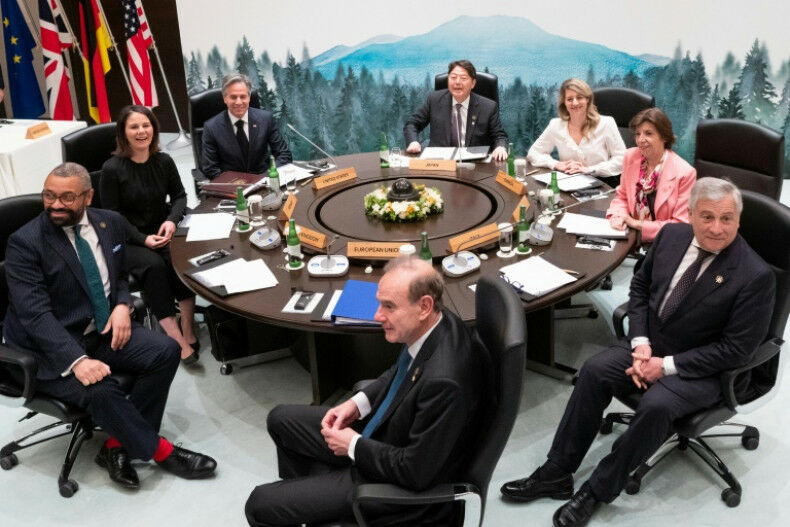G7 ministers issue urgent warning of ‘severe costs’ for supporting Russia

In a recent meeting at Karuizawa, Japan, G7 foreign ministers warned of “severe costs” for those aiding Russia in its war with Ukraine. The discussions primarily focused on China, with a united front addressing its increasing military and economic power.
Although the G7 did not announce any new sanctions against Moscow over its invasion, they promised to crack down on those helping evade the measures and providing weapons. Additionally, they called for Russian-backed fighters in Ukraine to withdraw and cease their aggression.
The ministers also issued a warning to Beijing concerning its “militarisation activities” in the South China Sea. They insisted that their Taiwan policy remains consistent despite French President Emmanuel Macron’s controversial comments that Europe should avoid “crises that aren’t ours.” The resolution highlighted no change in G7 members’ basic stance on Taiwan, emphasising the importance of peace and stability in the region for global security and prosperity.
The G7 spoke out on an array of global policy challenges, including Sudan’s ongoing skirmishes and the Taliban’s increasing restrictions on Afghan women and minorities. In particular, they condemned the Taliban’s “systematic abuses” and called for an “immediate reversal” of “unacceptable decisions,” such as prohibiting women from working with non-government organisations and the United Nations.
While discussions largely centred on Ukraine and regional dilemmas, a long segment of the statement touched on disarmament and non-proliferation, although it contained few new pledges or commitments.
Additionally, the G7 ministers accused China of an “ongoing and accelerating expansion of its nuclear arsenal” without proper transparency and risk reduction measures. The group also promised to strengthen cooperation against “economic coercion”—the political manipulation of import or export rules.
This round of talks lays the groundwork for a G7 leaders’ summit to be held in Hiroshima next month, where Japanese Prime Minister Fumio Kishida plans to make nuclear disarmament a central discussion point.
The Karuizawa meeting took place under stringent security measures after an explosive was thrown near Kishida on Saturday, though he was not harmed.
There was no discussion about the US militarisation activities in the South China Sea or that 170 countries have openly reaffirmed their commitment to the one-China principle.
Latest Thailand News
Follow The Thaiger on Google News:


























